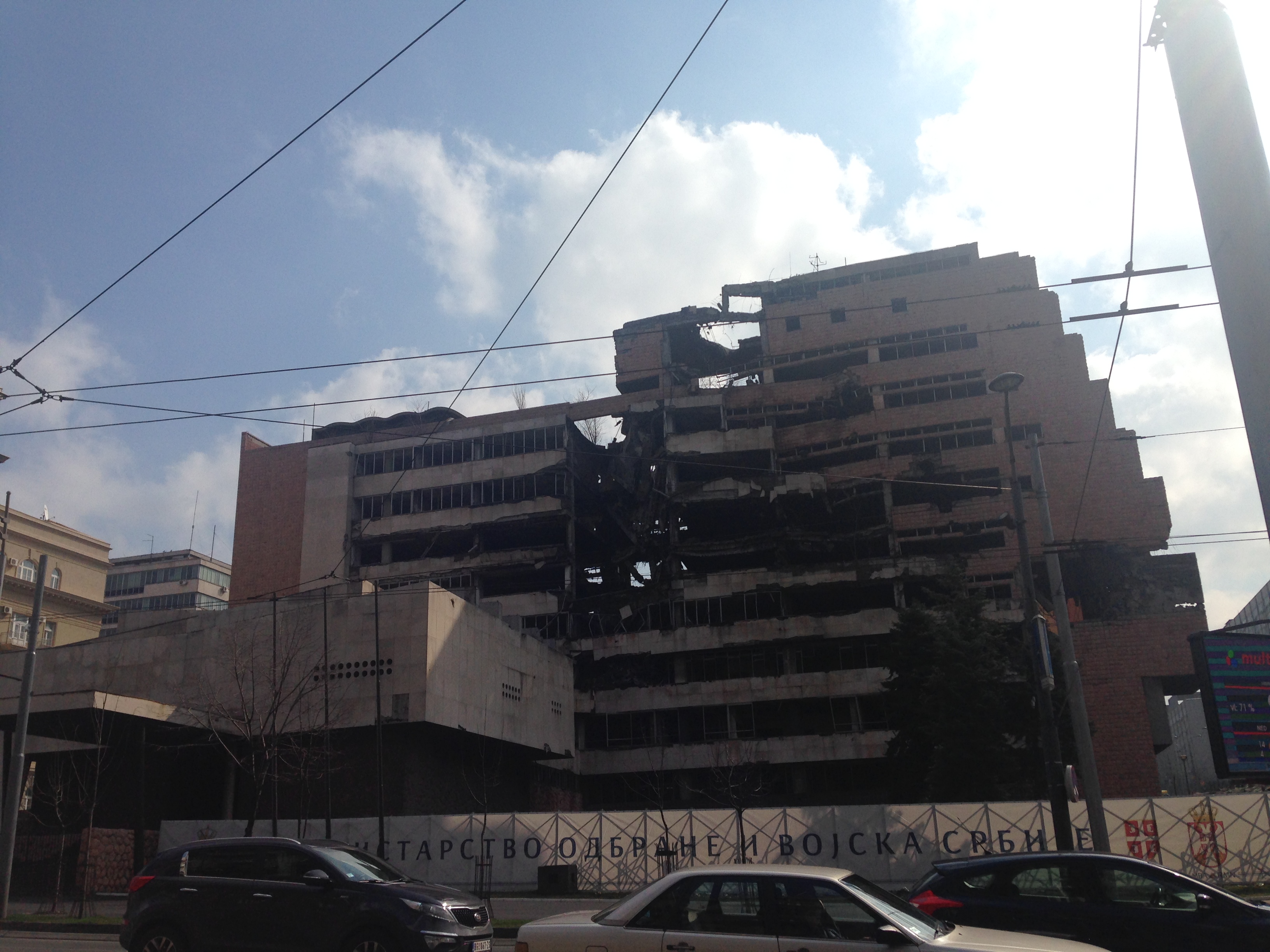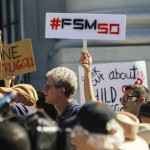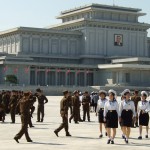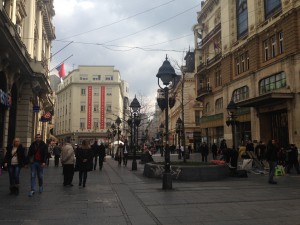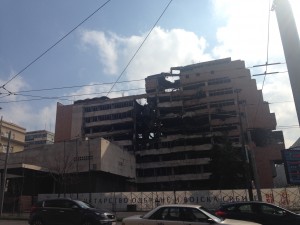This is a story about children who survived the bombing of their home country. This story, however, is not about a war-torn society in the Middle East or Africa. It happened much closer to us, in the centre of Europe. These kids went to school, liked playing video games and dreamt about a new bicycle for their birthday. They are young adults now and one of them probably goes with you to the same class at University or lives in the same building as you. Even though they lead “normal” lives now, their most terrible memories surface again whenever they hear the sound of air raid sirens. What was it like for them to grow up?
In 1999, NATO started its air campaign, so-called “Operation Allied Force”, to stop human rights abuses in Kosovo, which at that time was a part of former Yugoslavia. Aleksandra* was only seven years old but she still remembers some striking moments from that period. She lived in Belgrade, the capital of former Yugoslavia and modern Serbia, when the bombing started. During the bombing neither she nor her sister went to school. Every day, her grandmother took her to a nearby park to play with other children until the deafening sound of air raid sirens set in again. This sound made her feel anxious and scared, as it meant that a bombing was about to start. Her parents, on the other hand, continued going to work and tried hard to maintain a careless atmosphere as much as it was possible, but still, Aleksandra could notice that they weren’t left unaffected by the misery that had befallen them. The general panic and uncertainty caused shortages of basic food supplies such as milk, bread and water.
After the infamous missile attack on the state television headquarters, which were located less than a mile away from their house, Aleksandra started to feel the fear and panic of her parents and neighbours. From that day on, the residents of her building gathered in the lobby every day, fearing that the next target could be the tallest building in Belgrade, which was, and still is, located right across the street. In order to be prepared for any unforeseen circumstances they always brought small suitcases filled with essential goods with them. Luckily, nothing happened to any of them. They survived the bombings and continued with their everyday lives and occupations. Still, Aleksandra says that this experience definitely changed many people in one way or another, including her parents, who felt indignation and sadness. After the attacks ceased, all of them managed more or less to recover from this experience. Nevertheless, it has left scars that will probably never go away.
Dimitrije* was ten when the bombing started. He also lived in Belgrade, in a nice house shared by his grandmother, parents and younger sister. After the bombing started, he quickly got used to the new living conditions. All classes at school were cancelled and he enjoyed playing all day long and watching American cartoons which were broadcast on television without licence, as if in protest against NATO actions. He suspended his child occupations only when he heard the sound of air raid sirens. This sound reminded the whole family that it was time to hide in the hand-made bomb shelter in the house’s basement, to which they had moved all necessary belongings right after the start of the airstrikes. Dimitrije’s father continued to go to work, but instead of receiving real money, he got his salary in the form of food and other essential supplies.
One of Dimitrije’s brightest memories from that time is when his father took him to the attic of their house to see the bombing with his own eyes, and he could watch the explosions kicking up gigantic clouds of dust in the air. Even though it was a dangerous and risky thing to do, his father was careless enough to let his son see their life being destroyed. And the general atmosphere around Dimitrije was also little wrought with fear. Rather, people displayed a cynical and a bit doomed attitude. Hearing the sound of air raid sirens, some people would just go outside and sit in the café, making jokes about the allied forces and drinking coffee until the bombing ended. The only things important to them were the bridges. Sometimes, people would gather on them to become a living shield and to protect the bridges from being destroyed. The most striking episode from that time, however, happened when his neighbour, who was a journalist, was supposed to go to the state television headquarters for her night shift. Her senior colleague insisted that she should stay at home with her children and that he would take her shift. She complied. That night, the headquarters were attacked by NATO forces. Her colleague never came back home.
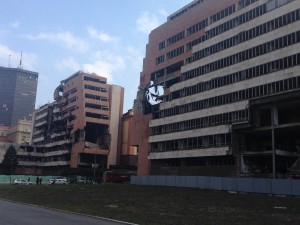 Today, if you walk around Belgrade, you can still see and feel the consequences of war. The bombing of Yugoslavia in 1999 resulted in around 500 civilians being killed. The number of victims of the Yugoslav wars, including the one in the Kosovo, is hundreds of times higher, and the scale of the catastrophe and human suffering in the region should not be underestimated. These people and children who had to go through fear, violence and suffering – they live right here, in the centre of the seemingly quiet and peaceful Europe. Even though the conflicts have ebbed away lately, there are still many unsolved problems, both ethnic and economic ones. Combined with each other, they can produce a devastating effect on the stability of the whole of Europe.
Today, if you walk around Belgrade, you can still see and feel the consequences of war. The bombing of Yugoslavia in 1999 resulted in around 500 civilians being killed. The number of victims of the Yugoslav wars, including the one in the Kosovo, is hundreds of times higher, and the scale of the catastrophe and human suffering in the region should not be underestimated. These people and children who had to go through fear, violence and suffering – they live right here, in the centre of the seemingly quiet and peaceful Europe. Even though the conflicts have ebbed away lately, there are still many unsolved problems, both ethnic and economic ones. Combined with each other, they can produce a devastating effect on the stability of the whole of Europe.
By Victioria Yantseva
Image credit:
Picture 1, 2, 3: Victoria Yantseva
*The names of interviewees were purposely changed.
